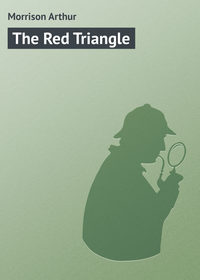 полная версия
полная версияThe Hole in the Wall
All this was ahead of my knowledge at the moment, however, as, indeed, it is somewhat ahead of my story; and for the while I did no more than wonder to see Mr. Cripps abashed at an encouragement to earn fifty pounds; for he seemed not a penny richer than before, and still impetrated odd coppers on account of the signboard of promise.
Once or twice we saw Mr. Viney, and on each occasion he borrowed money off Grandfather Nat. The police were about the house a good deal at this time, because of the murder, or I think he might have come oftener. The first time he came I heard him telling my grandfather that he had got hold of Blind George, that Blind George had told him a good deal about the missing money, and that with his help he hoped for a chance of saving some of it. He added, mysteriously, that it had been "nearer hereabouts than you might think, at one time"; a piece of news that my grandfather received with a proper appearance of surprise. But was it safe to confide in Blind George? Viney swore for answer, and said that the rascal had stipulated for such a handsome share that it would pay him to play square.
On the last of these visits I again overheard some scraps of their talk, and this time it was angrier. I judged that Viney wanted more money than my grandfather was disposed to give him. They were together in the back room where the boxes and bottles were – the room into which I had seen Bill Stagg's head and shoulders thrust by way of the trap-door. My grandfather's voice was low, and from time to time he seemed to be begging Viney to lower his; so that I wondered to find Grandfather Nat so mild, since in the bar he never twice told a man to lower his voice, but if once were not enough, flung him into the street. And withal Viney paid no heed, but talked as he would, so that I could catch his phrases again and again.
"Let them hush as is afraid – I ain't," he said. And again: "O, am I? Not me… It's little enough for me, if it does; not the rope, anyway." And later, "Yes, the rope, Cap'en Kemp, as you know well enough; the rope at Newgate Gaol… Dan Webb, aboard o' the Florence… The Florence that was piled up on the Little Dingoes in broad day… As you was ordered o' course, but that don't matter… That's what I want now, an' no less. Think it lucky I offer to pay back when I get – … Well, be sensible – … I'm friendly enough… Very well."
Presently my grandfather, blacker than common about brow and eyes, but a shade paler in the cheek, came into the bar-parlour and opened the trade cash-box – not the one that Mrs. Grimes had hidden among the cinders, but a smaller one used for gold and silver. He counted out a number of sovereigns – twenty, I believe – put the box away, and returned to the back room. And in a few minutes, with little more talk, Mr. Viney was gone.
Grandfather Nat came into the bar-parlour again, and his face cleared when he saw me, as it always would, no matter how he had been ruffled. He stood looking in my face for a little, but with the expression of one whose mind is engaged elsewhere. Then he rubbed his hand on my head, and said abstractedly, and rather to himself, I fancied, than to me: "Never mind, Stevy; we got it back beforehand, forty times over." A remark that I thought over afterward, in bed, with the reflection that forty times twenty was eight hundred.
But Mr. Viney's talk in the back room brought most oddly into my mind, in a way hard to account for, the first question I put to my grandfather after my arrival at the Hole in the Wall: "Did you ever kill a man, Grandfather Nat?"
CHAPTER XV
STEPHEN'S TALE
The repeated multiplication of twenty by forty sent me to sleep that night, and I woke with that arithmetical exercise still running in my head. A candle was alight in the room – ours was one of several houses in Wapping Wall without gas – and I peeped sleepily over the bed-clothes. Grandfather Nat was sitting with the cash-box on his knees, and the pocket-book open in his hand. He may just have been counting the notes over again, or not; but now he was staring moodily at the photograph that lay with them. Once or twice he turned his eyes aside, and then back again to the picture, as though searching his memory for some old face; then I thought he would toss it away as something valueless; but when his glance fell on the fireless grate he returned the card to its place and locked the box.
When the cash-box was put away in the little cupboard at his bed-head, he came across and looked down at me. At first I shut my eyes, but peeped. I found him looking on me with a troubled and thoughtful face; so that presently I sat up with a jump and asked him what he was thinking about.
"Fox's sleep, Stevy?" he said, with his hand under my chin. "Well, boy, I was thinking about you. I was thinking it's a good job your father's coming home soon, Stevy; though I don't like parting with you."
Parting with me? I did not understand. Wouldn't father be going away again soon?
"Well, I dunno, Stevy, I dunno. I've been thinking a lot just lately, that's a fact. This place is good enough for me, but it ain't a good place to bring up a boy like you in; not to make him the man I want you to be, Stevy. Somehow it didn't strike me that way at first, though it ought to ha' done. It ought to ha' done, seein' it struck strangers – an' not particular moral strangers at that."
He was thinking of Blind George and Mrs. Grimes. Though at the moment I wondered if his talk with Mr. Viney had set him doubting.
"No, Stevy," he resumed, "it ain't giving you a proper chance, keeping you here. You can't get lavender water out o' the bilge, an' this part's the bilge of all London. I want you to be a better man than me, Stevy."
I could not imagine anybody being a better man than Grandfather Nat, and the prospect of leaving him oppressed me dismally. And where was I to go? I remembered the terrible group of aunts at my mother's funeral, and a shadowy fear that I might be transferred to one of those virtuous females – perhaps to Aunt Martha – put a weight on my heart. "Don't send me away, Gran'fa Nat!" I pleaded, with something pulling at the corners of my mouth; "I haven't been a bad boy yet, have I?"
He caught me up and sat me on his fore-arm, so that my face almost touched his, and I could see my little white reflection in his eyes. "You're the best boy in England, Stevy," he said, and kissed me affectionately. "The best boy in the world. An' I wouldn't let go o' you for a minute but for your own good. But see now, Stevy, see; as to goin' away, now. You'll have to go to school, my boy, won't you? An' the best school we can manage – a gentleman's school; boardin' school, you know. Well, that'll mean goin' away, won't it? An' then it wouldn't do for you to go to a school like that, not from here, you know – which you'll understand when you get there, among the others. My boy – my boy an' your father's – has got to be as good a gentleman as any of 'em, an' not looked down on because o' comin' from a Wapping public like this, an' sent by a rough old chap like me. See?"
I thought very hard over this view of things, which was difficult to understand. Who should look down on me because of Grandfather Nat, of whom I was so fond and so proud? Grandfather Nat, who had sailed ships all over the world, had seen storms and icebergs and wrecks, and who was treated with so much deference by everybody who came to the Hole in the Wall? Then I thought again of the aunts at the funeral, and remembered how they had tilted their chins at him; and I wondered, with forebodings, if people at a boarding school were like those aunts.
"So I've been thinking, Stevy, I've been thinking," my grandfather went on, after a pause. "Now, there's the wharf on the Cop. The work's gettin' more, and Grimes is gettin' older. But you don't know about the wharf. Grimes is the man that manages there for me; he's Mrs. Grimes's brother-in-law, an' when his brother died he recommended the widder to me, an' that's how she came: an' now she's gone; but that's neither here nor there. Years ago Grimes himself an' a boy was enough for all the work there was; now there's three men reg'lar, an' work for more. Most o' the lime comes off the barges there for the new gas-works, an' more every week. Now there's business there, an' a respectable business – too much for Grimes. An' if your father'll take on a shore job – an' it's a hard life, the sea – here it is. He can have a share – have the lot if he likes – for your sake, Stevy; an' it'll build up into a good thing. Grimes'll be all right – we can always find a job for him. An' you can go an' live with your father somewhere respectable an' convenient; not such a place as Wapping, an' not such people. An' you can go to school from there, like any other young gentleman. We'll see about it when your father comes home."
"But shan't I ever see you, Gran'fa' Nat?"
"See me, my boy? Ay, that you will – if you don't grow too proud – that you will, an' great times we'll have, you an' your father an' me, all ashore together, in the holidays, won't we? An' I'll take care of your own little fortune – the notes – till you're old enough to have it. I've been thinking about that, too." Here he stood me on my bed and playfully pushed me back and forward by the shoulders. "I've been thinking about that, an' if it was lyin' loose in the street I'd be puzzled clean to say who'd really lost it, what with one thing an' another. But it ain't in the street, an' it's yours, with no puzzle about it. But there – lie down, Stevy, an' go to sleep. Your old grandfather's holdin' forth worse'n a parson, eh? Comes o' bein' a lonely man an' havin' nobody to talk to, except myself, till you come. Lie down an' don't bother yourself. We must wait till your father comes home. We'll keep watch for the Juno in the List, – she ought to ha' been reported at Barbadoes before this. An' we must run down to Blackwall, too, an' see if there's any letters from him. So go to sleep now, Stevy – we'll settle it all – we'll settle it all when your father comes home!"
So I lay and dozed, with words to send me to sleep instead of figures: till they made a tune and seemed to dance to it. "When father comes home: when father comes home: we'll settle it all, when father comes home!" And presently, in some unaccountable way, Mr. Cripps came into the dance with his "Up to their r'yals, up to their r'yals: the wessels is deep in, up to their r'yals!" and so I fell asleep wholly.
In the morning I was astir early, and watching the boats and the shipping from the bedroom window ere my grandfather had ceased his alarming snore. It was half an hour later, and Grandfather Nat was busy with his razor on the upper lip that my cheeks so well remembered, when we heard Joe the potman at the street door. Whereat I took the keys and ran down to let him in; a feat which I accomplished by aid of a pair of steps, much tugging at heavy bolts, and a supreme wrench at the big key.
Joe brought Lloyd's List in with him every morning from the early newsagent's in Cable Street. I took the familiar journal at once, and dived into the midst of its quaint narrow columns, crowded with italics, in hope of news from Barbadoes. For I wished to find for myself, and run upstairs, with a child's importance, to tell Grandfather Nat. But there was no news from Barbadoes – that is, there was no news of my father's ship. The name Barbadoes stood boldly enough, with reports below it, of arrivals and sailings, and one of an empty boat washed ashore; but that was all. So I sat where I was, content to wait, and to tell Grandfather Nat presently, offhand from over my paper, like a politician in the bar, that there was no news. Thus, cutting the leaves with a table-knife, my mind on my father's voyage, it occurred to me that I could not spell La Guaira, the name of the port his ship was last reported from; and I turned the paper to look for it. The name was there, with only one message attached, and while I was slowly conning the letters over for the third time, I was suddenly aware of a familiar word beneath – the name of the Juno herself. And this was the notice that I read:
La Guaira, Sep. 1.
The Juno (brig) of London, Beecher, from this for Barbadoes, foundered N of Margarita. Total loss. All crew saved except first mate. Master and crew landed Margarita.
CHAPTER XVI
STEPHEN'S TALE
I cannot remember how I reached Grandfather Nat. I must have climbed the stairs, and I fancy I ran into him on the landing; but I only remember his grim face, oddly grey under the eyes, as he sat on his bed and took the paper in his hand. I do not know even what I said, and I doubt if I knew then; the only words present to my mind were "all crew saved except first mate"; and very likely that was what I said.
My grandfather drew me between his knees, and I stood with his arm about me and his bowed head against my cheek. I noticed bemusedly that with his hair fresh-brushed the line between the grey and the brown at the back was more distinct than common; and when there was a sudden clatter in the bar below I wondered if Joe had smashed something, or if it were only a tumble of the pewters. So we were for a little; and then Grandfather Nat stood up with a sound between a sigh and a gulp, looking strangely askant at me, as though it surprised him to find I was not crying. For my part I was dimly perplexed to see that neither was he; though the grey was still under his eyes, and his face seemed pinched and older. "Come, Stevy," he said, and his voice was like a groan; "we'll have the house shut again."
I cannot remember that he spoke to me any more for an hour, except to ask if I would eat any breakfast, which I did with no great loss of appetite; though indeed I was trying very hard to think, hindered by an odd vacancy of mind that made a little machine of me.
Breakfast done, my grandfather sent Joe for a cab to take us to Blackwall. I was a little surprised at the unaccustomed conveyance, and rather pleased. When we were ready to go, we found Mr. Cripps and two other regular frequenters of the bar waiting outside. I think Mr. Cripps meant to have come forward with some prepared condolence; but he stopped short when he saw my grandfather's face, and stood back with the others. The four-wheeler was a wretched vehicle, reeking of strong tobacco and stale drink; for half the employment of such cabs as the neighbourhood possessed was to carry drunken sailors, flush of money, who took bottles and pipes with them everywhere.
Whether it was the jolting of the cab – Wapping streets were paved with cobbles – that shook my faculties into place; whether it was the association of the cab and the journey to Blackwall that reminded me of my mother's funeral; or whether it was the mere lapse of a little time, I cannot tell. But as we went, the meaning of the morning's news grew on me, and I realised that my father was actually dead, drowned in the sea, and that I was wholly an orphan; and it struck me with a sense of self-reproach that the fact afflicted me no more than it did. When my mother and my little brother had died I had cried myself sodden and faint; but now, heavy of heart as I was, I felt curiously ashamed that Grandfather Nat should see me tearless. True, I had seen very little of my father, but when he was at home he was always as kind to me as Grandfather Nat himself, and led me about with him everywhere; and last voyage he had brought me a little boomerang, and only laughed when I hove it through a window that cost him three shillings. Thus I pondered blinkingly in the cab; and I set down my calmness to the reflection that my mother would have him always with her now, and be all the happier in heaven for it; for she always cried when he went to sea.
So at last we came in sight of the old quay, and had to wait till the bridge should swing behind a sea-beaten ship, with her bulwarks patched with white plank, and the salt crust thick on her spars. I could see across the lock the three little front windows of our house, shut close and dumb; and I could hear the quick chanty from the quay, where the capstan turned: —
O, I served my time on the Black Ball Line,Hurrah for the Black Ball Line!From the South Sea north to the sixty-nine,Hurrah for the Black Ball Line!And somehow with that I cried at last.The ship passed in, the bridge shut, and the foul old cab rattled till it stopped before the well-remembered door. The house had been closed since my mother was buried, Grandfather Nat paying the rent and keeping the key on my father's behalf; and now the door opened with a protesting creak and a shudder, and the air within was close and musty.
There were two letters on the mat, where they had fallen from the letter-flap, and both were from my father, as was plain from the writing. We carried them into the little parlour, where last we had sat with the funeral party, and my grandfather lifted the blind and flung open the window. Then he sat and put one letter on each knee.
"Stevy," he said, and again his voice was like a groan; "look at them postmarks. Ain't one Belize?"
Yes, one was Belize, the other La Guaira; and both for my mother.
"Ah, one's been lyin' here; the other must ha' come yesterday, by the same mail as brought the news." He took the two letters again, turned them over and over, and shook his head. Then he replaced them on his knees and rested his fists on his thighs, just above where they lay.
"I don't know as we ought to open 'em, Stevy," he said wearily. "I dunno, Stevy, I dunno."
He turned each over once more, and shut his fists again. "I dunno, I dunno… Man an' wife, between 'emselves… Wouldn't do it, living… Stevy boy, we'll take 'em home an' burn 'em."
But to me the suggestion seemed incomprehensible – even shocking. I could see no reason for burning my father's last message home. "Perhaps there's a little letter for me, Gran'father Nat," I said. "He used to put one in sometimes. Can't we look? And mother used to read me her letters too."
My grandfather sat back and rubbed his hand up through his hair behind, as he would often do when in perplexity. At last he said, "Well, well, it's hard to tell. We should never know what we'd burnt, if we did… We'll look, Stevy… An' I'll read no further than I need. Come, the Belize letter's first… Send I ain't doin' wrong, that's all."
He tore open the cover and pulled out the sheets of flimsy foreign note-paper, holding them to the light almost at arm's length, as long-sighted men do. And as he read, slowly as always, with a leathery forefinger following the line, the grey under the old man's eyes grew wet at last, and wetter. What the letter said is no matter here. There was talk of me in it, and talk of my little brother – or sister, as it might have been for all my father could know. And again there was the same talk in the second letter – the one from La Guaira. But in this latter another letter was enclosed, larger than that for my mother, which was in fact uncommonly short. And here, where the dead spoke to the dead no more, but to the living, was matter that disturbed my grandfather more than all the rest.
The enclosure was not for me, as I had hoped, but for Grandfather Nat himself; and it was not a simple loose sheet folded in with the rest, but a letter in its own smaller envelope, close shut down, with the words "Capn. Kemp" on the face. My grandfather read the first few lines with increasing agitation, and then called me to the window.
"See here, Stevy," he said, "it's wrote small, to get it in, an' I'm slow with it. Read it out quick as you can."
And so I read the letter, which I keep still, worn at the folds and corners by the old man's pocket, where he carried it afterward.
Dear Father, – Just a few lines private hoping they find you well. This is my hardest trip yet, and the queerest, and I write in case anything happens and I don't see you again. This is for yourself, you understand, and I have made it all cheerful to the Mrs., specially as she is still off her health, no doubt. Father, the Juno was not meant to come home this trip, and if ever she rounds Blackwall Point again it will be in spite of the skipper. He had his first try long enough back, on the voyage out, and it was then she was meant to go; for she was worse found than ever I saw a ship – even a ship of Viney's; and not provisioned for more than half the run out, proper rations. And I say it plain, and will say it as plain to anybody, that the vessel would have been piled up or dropped under and the insurance paid months before you get this if I had not pretty nigh mutinied more than once. He said he would have me in irons, but he shan't have the chance if I can help it. You know Beecher. Four times I reckon he has tried to pile her up, every time in the best weather and near a safe port —foreign. The men would have backed me right through – some of them did – but they deserted one after another all round the coast, Monte Video, Rio and Bahia, and small blame to them, and we filled up with half-breeds and such. The last of the ten and the boy went at Bahia, so that now I have no witness but the second mate, and he is either in it or a fool – I think a fool: but perhaps both. Not a man to back me. Else I might have tried to report or something, at Belize, though that is a thing best avoided of course. No doubt he has got his orders, so I am not to blame him, perhaps. But I have got no orders – not to lose the ship, I mean – and so I am doing my duty. Twice I have come up and took the helm from him, but that was with the English crew aboard. He has been quiet lately, and perhaps he has given the job up; at any rate I expect he won't try to pile her up again – more likely a quiet turn below with a big auger. He is still mighty particular about the long-boat being all right, and the falls clear, etc. If he does it I have a notion it may be some time when I have turned in; I can't keep awake all watches. And he knows I am about the only man aboard who won't sign whatever he likes before a consul. You know what I mean; and you know Beecher too. Don't tell the Mrs. of course. Say this letter is about a new berth or what not. No doubt it is all right, but it came in my head to drop you a line, on the off chance, and a precious long line I have made of it. So no more at present from – Your Affectionate Son,
Nathaniel.
P.S. I am in half a mind to go ashore at Barbadoes, and report. But perhaps best not. That sort of thing don't do.
While I read, my grandfather had been sitting with his head between his hands, and his eyes directed to the floor, so that I could not see his face. So he remained for a little while after I had finished, while I stood in troubled wonder. Then he looked up, his face stern and hard beyond the common: and his was a stern face at best.
"Stevy," he said, "do you know what that means, that you've been a-readin'?"
I looked from his face to the letter, and back again. "It means – means … I think the skipper sank the ship on purpose."
"It means Murder, my boy, that's what it means. Murder, by the law of England! 'Feloniously castin' away an' destroyin';' that's what they call the one thing, though I'm no lawyer-man. An' it means prison; though why, when a man follows orders faithful, I can't say; but well I know it. An' if any man loses his life thereby it's Murder, whether accidental or not; Murder an' the Rope, by the law of England, an' bitter well I know that too! O bitter well I know it!"
He passed his palm over his forehead and eyes, and for a moment was silent. Then he struck the palm on his knee and broke forth afresh.
"Murder, by the law of England, even if no more than accident in God's truth. How much the more then this here, when the one man as won't stand and see it done goes down in his berth? O, I've known that afore, too, with a gimlet through the door-frame; an' I know Beecher. But orders is orders, an' it's them as gives them as is to reckon with. I've took orders myself… Lord! Lord! an' I've none but a child to talk to! A little child!.. But you're no fool, Stevy. See here now, an' remember. You know what's come to your father? He's killed, wilful; murdered, like what they hang people for, at Newgate, Stevy, by the law. An' do you know who's done it?"
I was distressed and bewildered, as well as alarmed by the old man's vehemence. "The captain," I said, whimpering again.
"Viney!" my grandfather shouted. "Henry Viney, as I might ha' served the same way, an' I wish I had! Viney and Marr's done it; an' Marr's paid for it already. Lord, Lord!" he went on, with his face down in his hands and his elbows on his knees. "Lord! I see a lot of it now! It was what they made out o' the insurance that was to save the firm; an' when my boy put in an' stopped it all the voyage out, an' more, they could hold on no longer, but plotted to get out with what they could lay hold of. Lord! it's plain as print, plain as print! Stevy!" He lowered his hands and looked up. "Stevy! that money's more yours now than ever. If I ever had a doubt – if it don't belong to the orphan they've made – but there, it's sent you, boy, sent you, an' any one 'ud believe in Providence after that."








